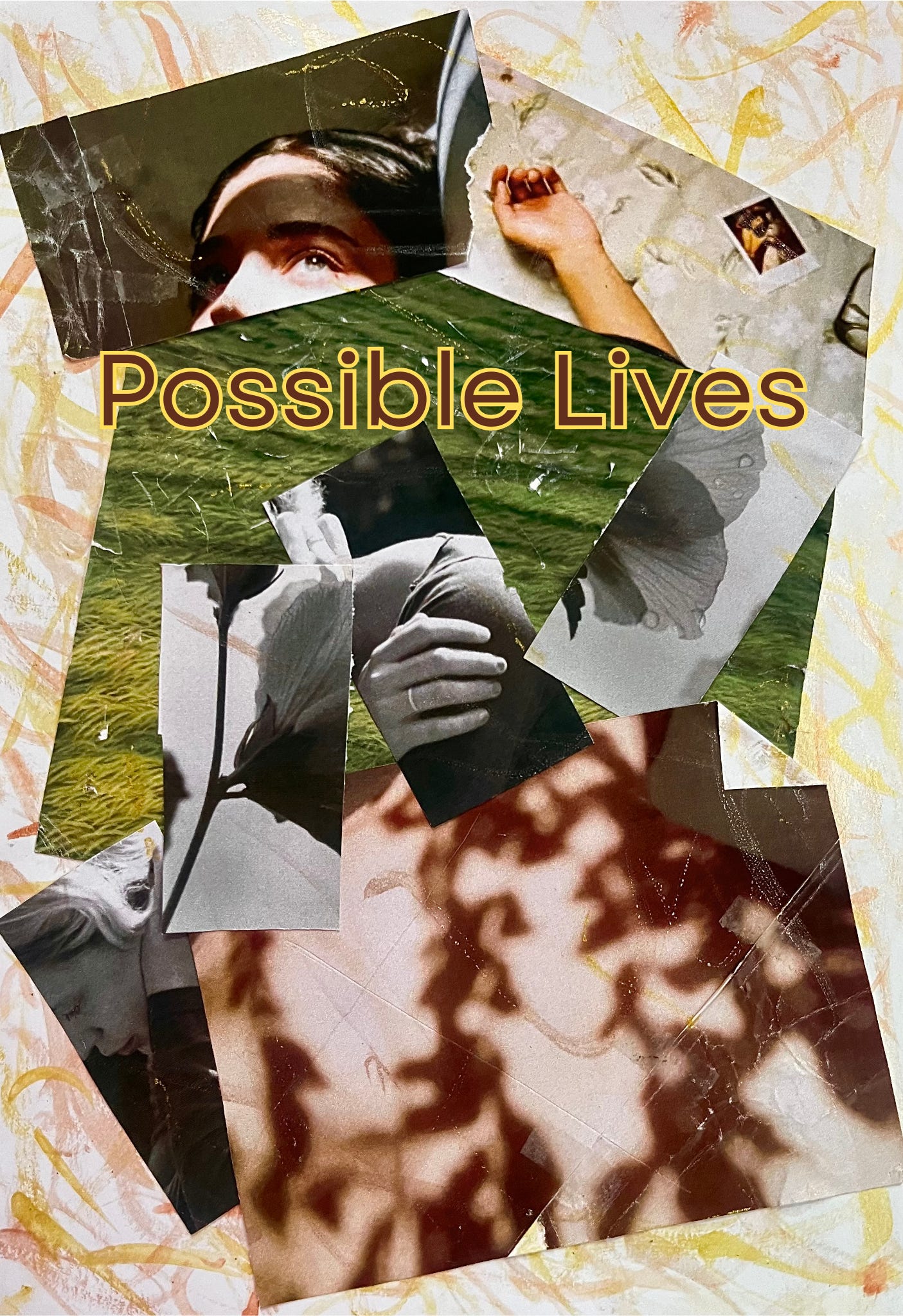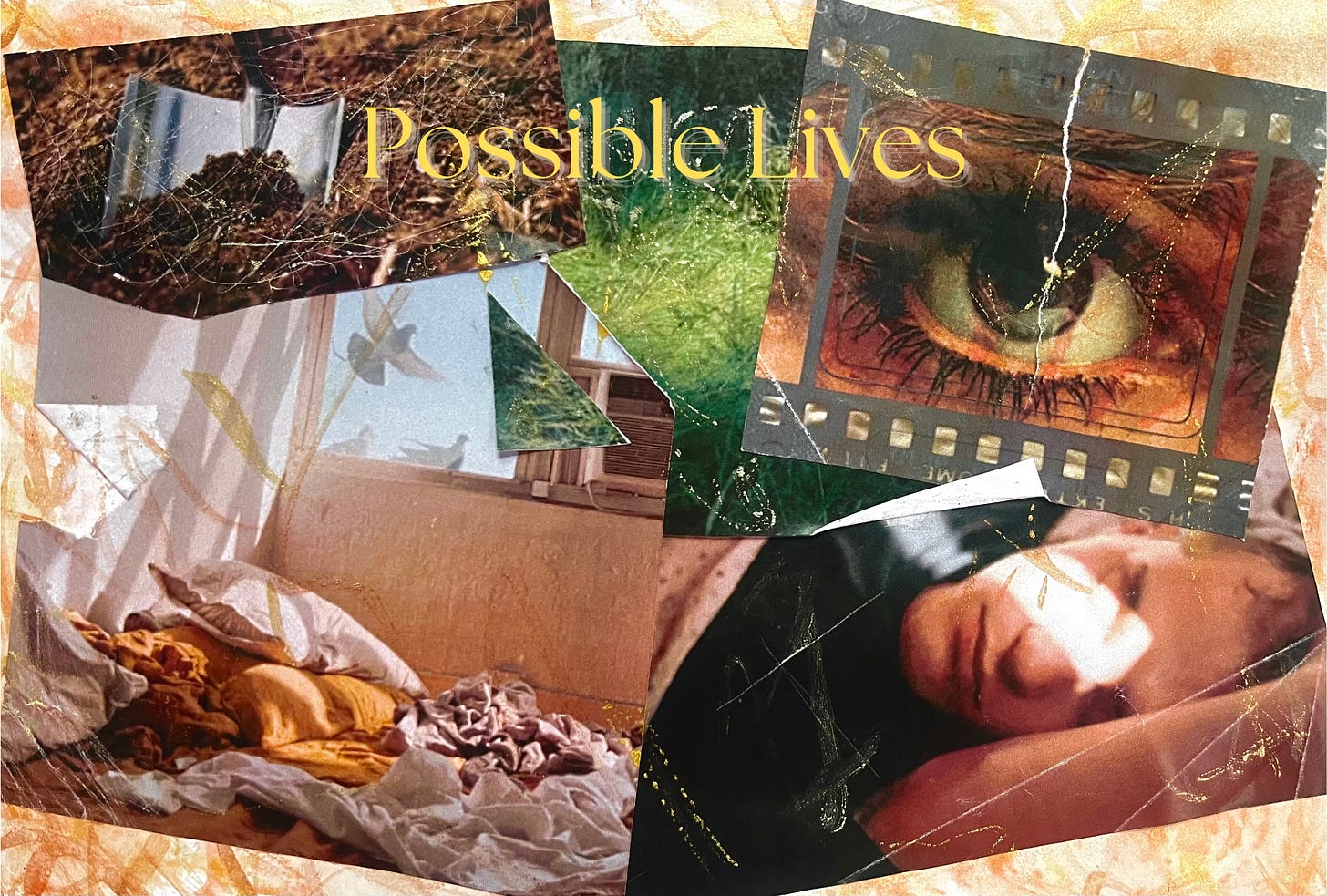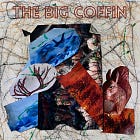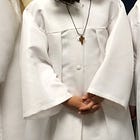Possible Lives
a short story
The sun strikes her eyes and the irises spark up, color scattering in a hundred directions like bottle rockets set off over the water and she sees every path, every diverging vein, all the love that she could ever be—and then a cloud crosses the sun and the feeling fizzles out and she’s just a woman holding herself once more. But that’s how she feels every time she goes for a walk in the still uncoiling spring. Each step is a wish to be someone else, somewhere else, where the sun hits just the same on a more fully realized person who doesn’t trip over the stacks of other possible lives. Each breath is a hope that its careful exhale will catch an onlooker’s eye and make her needed.
When the changing of the seasons starts to shimmer along the water’s surface, she imagines something will come along and change her, too.
There’s something different in the air today, like she might just collapse into a pile of dirt and be done, like so many seasons have come and gone and she can no longer hold herself up through their insistence to repeat over and over and over–does anything really change? Is she bound to be so wrapped up in herself and her desperate need to be seen in just the right light so that she is beautiful while her darkest parts are swept up in the shadow? Well, maybe. She supposes this is just what being twenty-five is like.
So, of course, this is the day in which possibility meets tangibility and Joanne’s life changes for a time before changing all over again.
Lee is in the garden, digging up a wound. He’s got his fingers buried so deep in the cool dirt he figures he might just leave them there, let them spread and take root. But then, he’s on his knees with his back bent and the position is an ache scrawling along his spine. He turns the soil, sits back on his haunches and wipes the sweat from his forehead with the back of his hand, replacing the sweat with a smear of dirt.
It’s a gorgeous day, unseasonably warm for early April. The sun is drifting across the sky, lazy and happy. The branches on all the trees are still bare but breaking open with pale green buds in all their temporary alien grace. Bags of fragrant mulch wait to be spread and settled by the daytime showers soon to come. When a gentle wind carries across the yard, beckoning a lifted chin turned toward the simple joy of the growing spring, he does not raise his gaze and instead lowers the lids of his eyes and begins to cry. Soft at first because it catches him unexpected, the way your own instinct can startle. And then, once the tears begin to pour in earnest, he doubles over in the dirt, presses his forehead to the ground and lets the sobs crawl through his body with a violence. His whole frame rattles with the force of it, arms wrapped tightly around his torso, fingers grasping for one another at the spine. Trying to hold himself in but spilling out anyway.
He can’t say what it is that brought it on. Just that the kiss of the swelling season came like a ghostly reminder of the enormity of his loss. His eyes water the soil and he gasps, wet and snotty into the hole he’s dug. It’s not that everything makes him think of Peter, it’s that Peter is in everything. The green of tender new leaves prodding the warm air, gentle like the way Peter used to watch Lee with loving curiosity when he thought Lee unaware. The quiet of this old countryside home startlingly still like the sprawling space by the seaside where they’d stayed for their fifth anniversary. The honey-dripping light like the day they first met when Lee saw his first future in Peter’s hushed brown eyes. The cold spilling from the earth in the same hue of Peter holding his hands out in the winter and without saying a thing Lee would know to take those soft artist’s hands in his and share the warmth.
Peter still occupies a space inside of him. Lee can’t be surprised, it’s only been a month. But he’s been trying, viciously and consistently, to excise the grief and no matter how much he coughs up, Peter remains. He worries that Peter will always be his bones, that he’ll never be able to stand without the reminder of Peter holding him up and then taking him down. He chokes on the ghost filling his throat, squeezes the tears from his eyes like crushing the juice from a lemon and then it passes and he breathes long and deep in child’s pose, cradled by the dirt.
When his body is no longer clutched by the grief, Lee sits back and returns to his task with a stubborn devotion to ignoring the weight of a lonely future. He scoops more dirt into a loose pile, sifts through the pouches of seeds until he finds what he’s looking for. Tilting the bag, the little embryos of future vegetables gather in the palm of his hand. He yields them to the earth.
Lee used to do this with his father when he was young, mostly as the errand boy. “Lee, can you get the spade?” “The mulch is in the back of the truck, can you grab it?” “See if mom can scrounge us up some lunch, bud.” Lee, ever diligent, wanted to be helpful and so he’d do as he was told. There was something in the quiet disposition of his father starting a garden in the early days of spring that he’d always felt pulled toward. It was clearly ritualistic for him and Lee was attracted to the idea of digging into the earth every year and sowing tiny things and watching them get big. It was a comfortable silence around his father like the kind you might share with a gurgling stream, obligatory and soothing.
With his mother on the other hand, silence carried a measure of tension like a rubber band on the verge of snapping. His mother had a difficult time with the quiet. She seemed to feel that there was always something to be said, that a lull in conversation was made to be broken, otherwise someone must be upset. Lee had been quiet since the day he was born, hardly ever fussed or cried or begged for attention. Silence came naturally to him, and was even a mode that often had to be overcome to share a thing needing to be said. Sharing a room with his mother sometimes felt like a chore and it was a deeply guilty relief when he’d finally moved across the country for college and found his quiet was something that no longer needed to be chased to far corners of his childhood home or the property’s wild edges.
Lee places his hands on his knees and turns toward the house. It’s just his mother now. He moved back in after the breakup on the assumption that the rolling green of the property and the safety of the house he’d been raised in would nurture him like a womb and tend the wounds in his heart. But he’s been finding it difficult. Even out here, digging into the dirt, picking up his father’s old ritual like a musty sweater lost in the closet, he can feel his mother hovering inside with something inane hovering on the tip of her tongue. All she’s talked of since he came home were the things that had changed in his absence, only in the lives of others. She hardly talked about herself or his father or the overgrown property. It was all “Remember Randy from Boy Scouts? I saw his dad in the market” and “Susan’s daughter just moved to Boston. She’s a hairdresser now, I think. Do you remember Susan?”
There was hardly a thing from this town that he’d grown up with which he’d carried into adulthood. He’d been finding it unexpectedly difficult to parse apart the feelings of being back here from the grief of his breakup from the ghostly absence of his father who is God-knows-where having a mom-knows-but-won’t-tell post-divorce-spiral.
Lee clutches the spade in his hand and digs absent-mindedly. It’s all different in a frustratingly undetectable way. The birdsong feels sparse and melancholy. Someone painted the shutters black. The trees Lee climbed as a child are all wrong, the best sitting limbs rotted or broken or somehow smaller than his grown body remembers them. If he sees Peter again, someday, will their hearts feel this same dissonance? That might break him all over again.
The spade meets a sudden resistance. Lee observes that he’s dug much deeper than he’d meant to, several inches into the earth where any planted seeds would never dream of reaching the sun. When he pulls the spade out of the hole, there’s something at the bottom, glinting pale red in the sunlight. With an archaeologist’s touch, he brushes the loose dirt away from it until its shape is revealed and then he carefully unearths it.
The thing sits loosely but powerfully in his hand. A necklace with a precious silver chain and an intricately engraved oval inlaid with a still gorgeous ruby. Its history is loud and refuses to transcribe itself.
Lee’s knees creak and groan as he stands. His mother is at the kitchen island looking at apartment listings on Zillow. “Lee, have you seen this one?” she asks without looking up, chained glasses perched on the tip of the round nose they share. “The bathroom is ugly but it’s cheap and the windows are huge.”
“I’ve seen them all,” he says quietly. Gently, as though it were made of glass, he places the necklace on the island next to her laptop. It takes her a moment to notice it and when she does, she goes quiet. Her back straightens, her hand goes softly to her chest and she laughs in disbelief.
“You found this outside?” She doesn’t look at Lee.
“Is it yours?”
“It was,” she explains. “I haven’t seen it in, God, thirty years?”
Lee’s mouth hangs open slightly. “Thirty years. Wow. Did dad give it to you?”
She laughs again. “No. My first love did.”
Joanne isn’t looking when he sees her. She doesn’t feel it either, not like she imagined. Somewhere along the way she’d convinced herself that being seen in the perfect pool of slanted light would cement her into reality and she would feel it. The individual components of her humanity would fall into place, all her displacement would slip away and all that she wanted would finally shed its abstraction. But she doesn’t feel it at all. She’s standing on the sidewalk outside a coffee shop sipping on her tea and plotting her next move. She’d spent the whole morning walking around the pond but the urge to keep wandering aimlessly is strong.
It takes him multiple tries to approach her. He watches her for so long, her round face obscured by falling hair and the steam rising off of her drink, he starts to feel like a creep and so he walks away and then the regret turns him right back around.
He approaches her hastily as though he’s in a rush. She startles–but then it’s there. Looking up at his nervous, hopeful and hopeless face and the self-admonishing smile he puts on for her–it’s the seeing him that rocks Joanne’s foundation and sets off a landslide in her chest. It all tumbles.
Hi, I’m Gary and Hi, I’m Joanne and then three laps around the pond and raised goosebumps under the lowering sun and the potential of their hands touching and laughing while they both duck into the bushes to pee and wanting to go home together but terrified of the quickness and so a few drinks at the bar on the corner where the bartender tries to flirt with her so he loops his arm through hers like a claim and stumbling home drunk and the two of them in her bed and still there in the morning—the way these things happen in a flood.
Joanne, after watching so many leaves open in the Spring, hadn’t known anything could unfurl so quickly. She loves Gary so suddenly like he’s always been there and he’s with her every night and she’s never told someone all of the things that pour from her heart when he’s listening and she’s never had the tender skin behind her ear kissed like that and he’s clasping a priceless necklace while she holds up her hair and he’s pressing into her from behind with his lips against the nape of her neck telling her and this means I’ve always got you and despite all her hopeless hoping she hadn’t thought she would get this. She could not believe that she deserved it. She knew for certain that twenty-five would turn to twenty-six would turn to thirty and her life would bleed away into the cracks in the sidewalk she glides down hoping to be seen.
Twenty-five does turn to twenty-six, only Gary stays and twenty-six does turn to thirty but they live together now and the love is a settled and settling thing. Joanne relaxes into the love. It’s more comfortable than anything she’s ever known and Gary always looks at her. Any time she turns over her shoulder, there’s Gary looking away shyly. She feels golden. There’s nothing left to haunt her.
Except hauntings can start as quickly as they stop. And the thing that they’d been avoiding bristled at Joanne’s need. Gary doesn’t want children. Gary was raised without kindness and he’s terrified of proving himself to be just like his father. Joanne was raised with so much restraint and unspoken love and she wants to do better for her daughter–she’s always dreamed of having a daughter and she’s never resisted it. A child is a thousand different futures.
And neither party refuses to budge, so adamant are they in their beliefs. And both parties wondering, if they loved me more, would they do this for me? But Joanne believes he’ll change his mind. Sooner would be better but she won’t rush the future. Her daughter will come and Gary will be a good father–she knows it. He’ll see her resolve and it will strengthen him.
But Gary never learned what to do with his fear, only to let it drive him. So he proves to himself that he is the kind of man he thinks himself to be. He drives his fear into Joanne’s heart and shatters every image she’d built up.
And then she’s moving back home to her parent’s countryside house, the one she’d left the moment she was able to because they never saw the right parts of her. Because her mother always boxed her up and her father always turned toward things less difficult than a woman expressing. But she has nowhere else to go, so she’s home again and she can’t even see herself. She holds onto the idea of Gary, knowing he’ll come back when his fear of being alone consumes all other fears and he’ll need her again. The light has to hit her again.
She spends her mornings beneath heavy blankets. Her mother brings her soup that she cannot finish. The birds dance in the branches outside her window and the songs they sing sound untrue. The necklace remains soft against her breast, pulsing in time with the beat of her heart. Days bleed into weeks and she pores over the garden with her mother, gathering fresh veggies in a basket, then crying over their shapes all swollen like her heart, then getting up the next day and doing it again. Still, her grief clutches her, and still she wonders when Gary will come back to her.
The always turning planet always turns. An old friend she’d been avoiding gets Joanne out of the house to the bar in the town she grew up in and there’s that guy she went to high school with in whisky-gold light and she feels him looking at her, maybe not really seeing but looking as a doorway. There’s the drunken instinct to lose herself in hedonism. Then there’s her late period and the positive test. There’s the necklace she buries in the backyard deep beneath her mother’s garden just in case Gary comes back, but it’s really that belief which she’s burying. The truth flourishes with the rising heat of early summer, her belly swells and there are people she must tell.
There’s a boy growing in Joanne’s stomach and the father is happy and scared and staying. They build a love around the thing they’ve made together. It might not last but maybe it will. The love might die but the life they make will be strong.
There’s everything that comes after, as a matter of course. There’s Joanne’s father getting sick while Lee is still a rolling pillbug baby and she must walk him to his death along with all the things left unsaid. And there’s her mother making the same walk one year later and all the things that were said make it no easier. The house becoming not just hers but this other man’s, a thing they share together with her parent’s ghosts and this child that exploded from their random coincidence of time and three-dimensional place. The movement of life is such that it keeps moving.
But first, there’s the big, endless expanse of a moment, when Joanne holds her fresh son in her hospital bed and the slanted evening sunlight hits his big, curious irises and a thousand possible futures spark to life and none of them scare her.
The evening bleeds slow over a quiet conversation, the only sound from the tick ticking wall clock and the click clicking cicadas in the lush fields.
“You never told me that,” Lee says with his hands folded in his lap. “I thought dad was the only guy you were ever with.”
Joanne grins weakly in remembrance. “Gary was so long ago. We were together for five years which felt like a lifetime then but it’s only a dot on a line looking back on it.” She breathes softly, tracing the ruby with her index finger. “I forgot so long ago that I buried this out there. This necklace was…gosh, his grandmother’s, originally. And she passed it on to his mother and she died the year before we met and he had no clue what to do with it so he strung it around the neck of the girl he was seeing. I think he was trying to convince himself of forever. But things change, you know?”
Lee looks all around the room. He’s not sure how to talk to his mother this way. He’s not sure of anything. His exhale carries his question: “But you…loved him more than dad? Did you love dad at all or was it just for me?”
Joanne casts her gaze out the window over the kitchen sink. The early evening sun throwing gold and orange streamers across the trees stretching out over the valley. In the morning, she’ll put on her tall boots and pick wildflowers in the tall grass.
“Love doesn’t work like that, honey,” she says, the words strange and true in her own mouth, delivered from a place she hasn’t touched in so long. “The way I loved Gary was…big and wild and impermanent. The way I loved your father was small and difficult and it still hasn’t ended. We loved each other for you, sure, but we separated for us. So we could keep loving each other without hating each other. I’d love you, too, if you walked away from me, honey. That’s the thing—it changes, but it stays. Love just stays.”
Lee hadn’t cried while listening to his mother’s story but he collapses his head into his hands now and cries in tiny, jerking sobs muffled by the lifelines in his palms. The ache of his hurt heart echoes into an eternity he can’t yet see the end of.
Joanne stretches across the island and draws circles against her son’s back as though etching a memory into his skin. She soothes him on and on all the while watching the sun sink below the horizon out the window. With her other hand, she loops a dirty old chain through her fingers and lets an old calm wash over the decades, smoothing her into something she understands.








this is masterful and devastating
I love this. So good. Beautiful, immaculate writing as always. Somehow the sincerity, power, honesty, and empathy that shines through in your storytelling skills never fails to make me cry and laugh simultaneously. Experiencing empathy, tears in the typing pool, and the genuine joy of laughter has got to be the highest form of a compliment in my book. Seriously I love reading your tender, truthful, brilliant short fiction stories. I’m grateful that I came across your excellently crafted, unmatched and original, one of a kind short stories here. Thank you my friend for sharing your new story with me <3